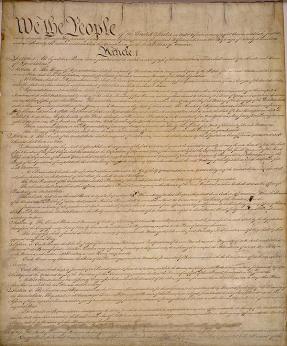When I was very young, our church became involved in the War on Poverty outlined by the Johnson administration (1964). My father attended events and marches to raise awareness about the fact that many people in this wealthy nation, the USA, were struggling–even starving. It seemed, probably idealistically, that a country as prosperous as the US was in ’64 would find a way to insure that all its citizens could have enough to eat and a roof over their heads. (This was Johnson’s “Great Society”)
A memory:
My sister, my mother, and I are seated at the table in our little apartment kitchen in Yonkers, NY. My father is away on pastoral business, but the previous evening, he’d told us that we were going to fast the next day in solidarity with poor people who never had enough food to eat. The reason for fasting was to let us feel how they must feel.
My little sister thought that was unfair. She was, in her defense, only four years old.
Of course it was unfair. That was the point. Why should some people have plenty of food while others went hungry? That is unfair. (This logic she understood, though I don’t think either of us made more of the connection at that time.)
“You kids won’t fast the whole day,” my folks said–just suppertime.
Now it is suppertime. We are at the table, and the table is bare. We each have a glass of water, not milk. And we are hungry. Our mother has fasted the whole day. Isn’t she hungry? Yes, she says. She’s hungry. It isn’t a good feeling, and we whine awhile, hungry and in addition, bored.
“Okay,” she says, “you can each have a piece of bread. One piece.”
It is something, but it doesn’t fill the stomach.

bread
Another memory:
I’m in my thirties, with young children of my own now, and talking with my mother about her past–a past she has kept from us, and from herself, and is slowly learning to accept. A past that included growing up during the Depression with five siblings. How her father refused, out of pride, any kind of government relief. How hard her mother worked to keep the family from going hungry.
I think, then, that my mother knows what it means to be hungry.
~~
Many decades later, the term for hunger has become, in legislature and grant proposals, “food insecurity.” The jargon, the euphemism, distances us from the facts. People without enough good nutritious food are not insecure. They hunger.
I don’t want words to operate that way, moving the reader away from understanding. I want words to bring us close, to open up the mundane and horrible real and the fervently imagined possible. Language that sears and mends, the interpretation of which also can sear and mend, words that do not act as misprision but as multi-faceted revelation. Those are the words for which I am hungry.
Something that fills the stomach: embodied, flavorful, wonderful words. That’s one of the reasons I love poetry so much, that hunger for the non-distancing. The relationship that brings us truth. The truth that is often unspeakable.
Poems can take us there:
The right boy will approach the dampness of a forest with a sling, a modest twining
wreath for the bodies of birds. A liquid eye.

 r from necessary when one encounters a really terrific poem. There are reasons to learn the backstory of a poem, if such a thing exists for that particular poem (not all poems have one). Anyway, it may be worth asking the poet about it, if she is still living and can answer or if the answer may be deduced from archival materials. We have learned the backstories of a few Elizabeth Bishop poems, just taking one well-known poet as an example (see
r from necessary when one encounters a really terrific poem. There are reasons to learn the backstory of a poem, if such a thing exists for that particular poem (not all poems have one). Anyway, it may be worth asking the poet about it, if she is still living and can answer or if the answer may be deduced from archival materials. We have learned the backstories of a few Elizabeth Bishop poems, just taking one well-known poet as an example (see 

